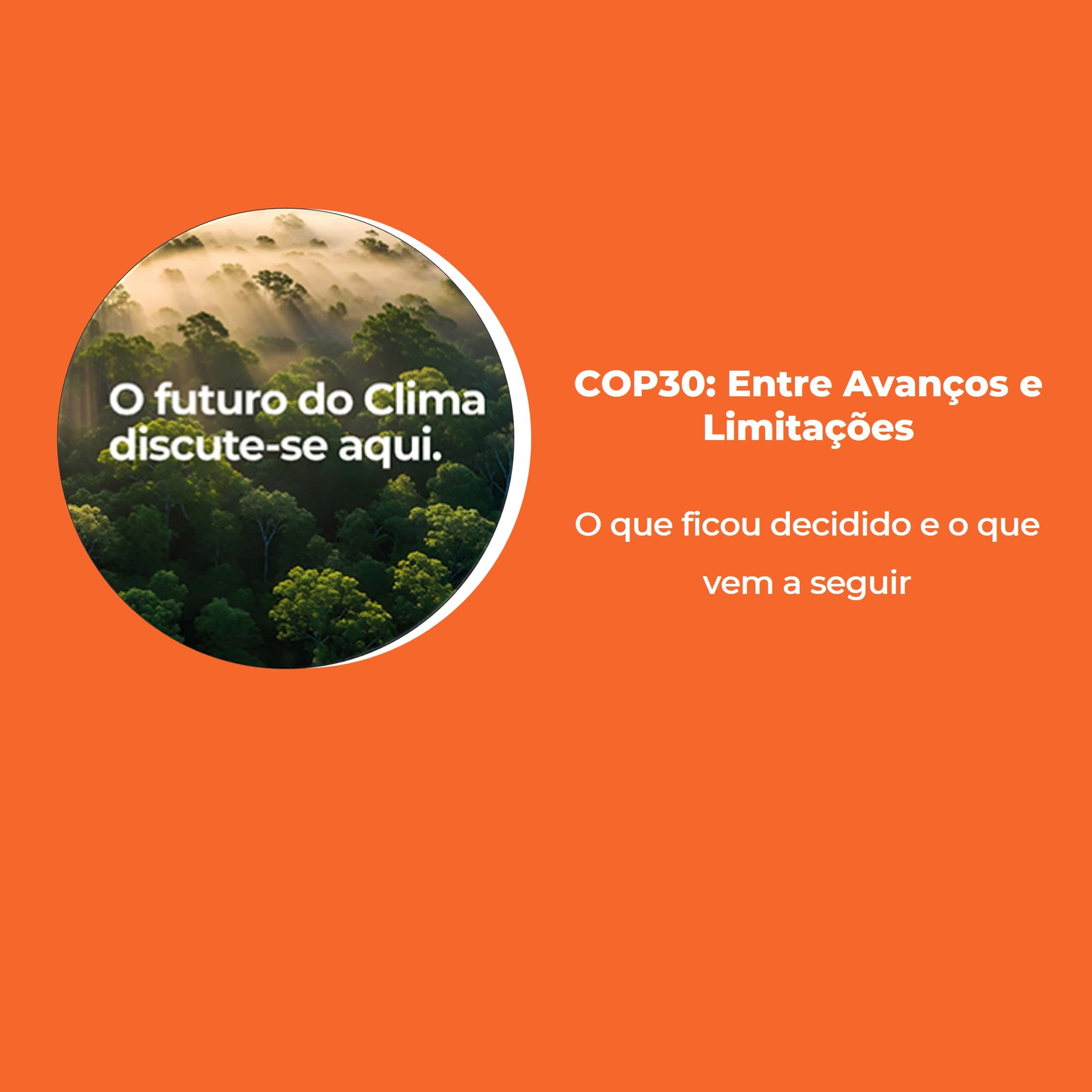COP30: Between Progress and Limitations - What was decided and what's next
This year's COP30 in Belem brought important results, but also made it clear that the road to a just and effective climate transition is still full of challenges. While some advances represent significant steps forward - such as the strengthening of funding for adaptation and the creation of just transition mechanisms - the absence of binding commitments to phase out fossil fuels shows that we are still far from the level of ambition needed to fulfill the Paris Agreement.
At GRACE, we follow these developments closely because we believe that companies have a key role to play in accelerating climate action. The COP30 conclusions reinforce not only the urgency of integrating sustainability into business strategy, but also the importance of strengthening collaboration between sectors to ensure that the transition is inclusive, fair and based on robust scientific knowledge.
This article summarizes the main results of the conference and highlights the issues that will have a direct impact on the business sector and Portuguese society. We invite all our Members to explore this summary and reflect on the contribution that each organization can make at this decisive moment for the future of the climate.
COP30: Between Progress and Limitations - What was decided and what comes next
COP30, held in Belém, marked an important symbolic and political moment on the international climate agenda. For the first time, the Amazon hosted the main global climate conference, raising high expectations of ambitious decisions capable of accelerating the climate transition. However, as an analysis by the International Institute for Sustainable Development (IISD) reveals, the final balance is one of significant progress, but far from the level of ambition required by science.
Financing: structural progress, but slow
One of the main outcomes of COP30 was the creation of a two-year work programme to operationalize the new Quantified Collective Climate Finance Goal (NCQG). The figure agreed in Baku - 1.3 trillion dollars a year by 2035 - was confirmed, combining public and private funding and innovative mechanisms.
Despite being an important step, the IISD points out that the 2035 horizon is too distant for the current climate urgency. Vulnerable countries had hoped for an immediate increase in funding, especially for adaptation, but the final text did not include any short-term commitments. Nevertheless, there is progress: the agreement sets a target of triplicar o financiamento para adaptação até 2035This is an important sign of recognition of the growing needs of the most affected communities.
Adaptation: too many indicators, not enough clarity
COP30 also approved around 60 indicators to operationalize the Global Goal on Adaptation (GGA). However, changes introduced in the final hours of the negotiations have compromised some of the consistency and usefulness of these indicators, according to IISD. The result is a framework of metrics that exists on paper, but whose practical guidelines for implementation remain vague.
A mechanism was also created to accompany the National Adaptation Plans (NAPs), recognizing important advances such as the use of indigenous knowledge and nature-based solutions. However, once again, the text does not offer a clear path for scaling up funding or technical support.
Mitigation and fossil fuels: the great impasse
Although 88 countries supported a roadmap for phasing out fossil fuels, the final text did not include an explicit phase-out commitment. This is seen as one of the conference's biggest weaknesses, reflecting the growing gap between scientific recommendations and possible political consensus.
In response to the lack of a binding commitment, two political initiatives were launched:
"Bethlehem Mission to 1.5"aimed at accelerating the implementation of the targets aligned with the Paris Agreement;
"Global Implementation Acceleratorfocused on supporting the implementation of NDCs and NAPs.
Although well-intentioned, both are voluntary in nature and do not replace binding global targets - a point widely criticized by experts.
Just Transition: a positive step
COP30 created the Just Transition MechanismThis is a mechanism geared towards capacity building, knowledge sharing and international cooperation. The priority is to ensure that workers, vulnerable communities and developing countries have access to technical and economic support during the energy transition.
This mechanism is seen as one of the most constructive points of the conference, reinforcing the centrality of social justice in global climate policies.
Trade and climate: recognized tensions
The growing tensions between climate policies and international trade - such as carbon adjustment mechanisms at the border - have finally been recognized. COP30 agreed to promote formal dialogues in the coming years to bring agendas closer together and avoid trade conflicts associated with the energy transition.
Gender: relevant advances
Another positive point was the approval of the new Gender Action PlanThe report, which reinforces the need for disaggregated data, greater participation by women and gender-sensitive climate policies. It is seen as a significant step forward in integrating gender equality into global climate action.
What to expect at COP31
The next summit, which will take place in Turkey under Australia's presidency, will have the responsibility of turning the Bethlehem decisions into concrete progress. The focus will be on advancing voluntary roadmaps, approving clearer guidelines for financing and reinforcing mitigation commitments - especially at a time when the window for limiting global warming to 1.5°C is closing fast.
